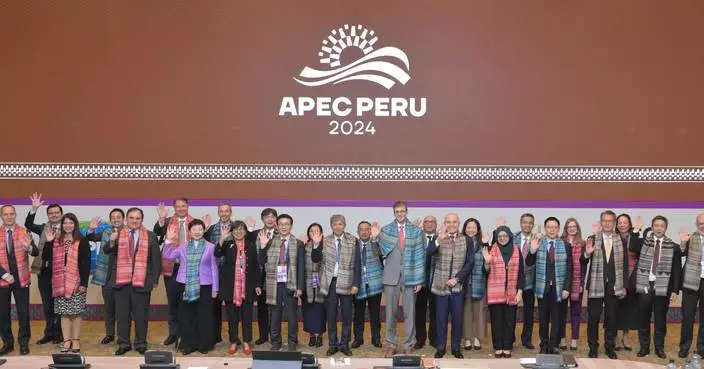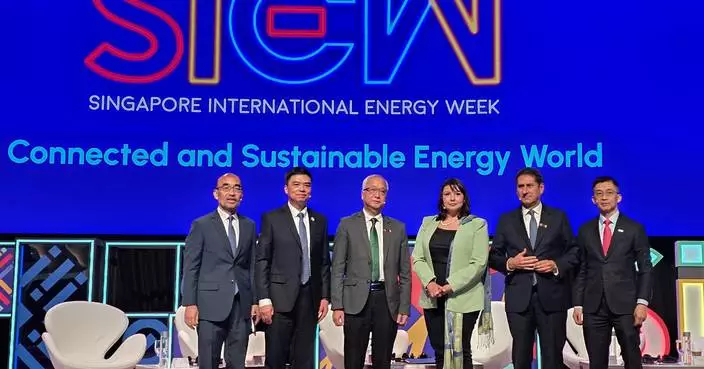SFST's speech at MaGESpire Game On! 2024
Following is the speech by the Secretary for Financial Services and the Treasury, Mr Christopher Hui, at MaGESpire Game On! 2024 today (October 22):
Distinguished guests, ladies and gentlemen,
I am honoured to join you today at MaGESpire Game On! 2024. This event unites innovators, technology enthusiasts, and industry leaders to explore the evolving landscape of technology and its role in shaping our modern economy. Together, we will examine the synergies between the financial services, technology, and virtual asset sectors as we forge our future. As many of you, the pioneers of Web3, know, Hong Kong is rapidly establishing itself as a global hub for virtual assets. We can encapsulate this progress with our "web" of three focuses: a warehouse of talent and investment, the evolution of money and technology, and a breakthrough to establish a new fintech innovation ecosystem.
Warehouse of talent and investment
In recent years, the Web3 industry has emerged as a transformative force in the global economy, reshaping the financial services landscape and creating new opportunities. I am proud to say that Hong Kong has become a magnet for talent and investment, with over 220 Web3 companies from more than 20 countries setting up operations in our vibrant city. These include key players in virtual asset exchanges, blockchain infrastructure, network security, and payment sectors. This influx of innovation underscores the supportive environment we are cultivating.
With the rise of virtual assets, the intersection of innovative technology and financial services presents unique opportunities for economic growth. In October 2022, we issued a Policy Statement on the Development of Virtual Assets in Hong Kong, outlining our vision and policy direction. We recognise that innovation must thrive within a robust regulatory framework that ensures the security and stability of our financial ecosystem. In 2023, we introduced a licensing regime for virtual asset service providers, granting them the credibility needed to access a broader base of investors in Hong Kong. Currently, we have three licensed providers and 11 applicants in the pipeline, reinforcing our commitment to a well-regulated market.
Looking ahead, we plan to amend regulations further, including bringing over-the-counter trading of virtual assets and virtual asset custodian service providers under our regulatory purview. We are also establishing a regulatory regime for stablecoin issuers, and the Hong Kong Monetary Authority (HKMA) has launched a sandbox for institutions to test their operational plans. These initiatives ensure that our regulatory framework remains comprehensive and responsive to the fast-changing landscape of the virtual assets sector.
A landmark achievement for Hong Kong was the launch of the first spot Bitcoin and Ether exchange-traded funds (ETFs) in Asia this past April, positioning us to capture the benefits of these underlying technologies. The listing of virtual asset spot ETFs represents a significant milestone in Hong Kong's ETF market development, driving innovation and economic growth for all.
Evolution of money and technology
The Government acknowledges the critical importance of advancements in digital money. A recent market study revealed that around 90 per cent of the world's central banks and 134 countries are currently exploring central bank digital currencies (CBDCs). A particularly exciting development in our fintech landscape is the progression of CBDCs. In March of this year, the HKMA announced Project Ensemble, an initiative focusing on a wholesale central bank digital currency (wCBDC) to support the tokenisation market in Hong Kong. We remain committed to developing innovative financial market infrastructures that enable interbank settlements of tokenised money through wCBDC.
In recent months, we have made substantial strides in cultivating a vibrant ecosystem for fintech innovation. Our multi-pronged approach includes expanding the cross-boundary e-CNY pilot programme to provide safe and convenient retail payment solutions for residents in both regions, as well as commencing Phase 2 of the e-HKD Pilot Programme to explore innovative use cases for new forms of digital currency, including e-HKD and tokenised deposits. These initiatives reflect our dedication to enhancing financial connectivity and driving technological advancement in Hong Kong.
Breakthrough to establish a new fintech innovation ecosystem
Across various industries, we are witnessing a significant uptick in the adoption of artificial intelligence (AI) in business operations. Companies are increasingly leveraging AI across multiple facets of their operations. A market report indicates that many regions are making significant progress in adopting Generative Artificial Intelligence (GenAI).
The development of AI has become a major global trend. As an international financial centre with a robust capital market, Hong Kong attracts the world's top financial institutions and talent, providing professional financial services that capitalise on this exciting opportunity. According to the latest Global Financial Centres Index, Hong Kong ranks ninth in fintech offerings, placing us among the top 10 fintech hubs globally. This year, we launched the GenAI Sandbox in August, empowering banks to pilot innovative GenAI use cases within a risk-managed framework, supported by essential technical assistance and targeted supervisory feedback. As announced last week in the 2024 Policy Address, we will issue a policy statement outlining our policy stance to the application of AI in financial markets, as well as promoting real-world asset tokenisation and developing a digital money ecosystem.
In closing, I want to emphasise that the future of the fintech sector is bright, presenting tremendous opportunities. For example, the tokenised asset market is projected to reach US$30 trillion by 2034. As we gather here today, I urge all of you - our Web3 investors - to collaborate and share ideas. You are the architects of a future filled with limitless possibilities. Together, we can explore the potential of the Web3 market and develop innovative business models.
As we embark on this exciting journey, our collaborative efforts will undoubtedly create a thriving virtual asset ecosystem and contribute to Hong Kong's financial innovation. I look forward to witnessing the remarkable ideas and projects that will emerge from this event. Thank you.






